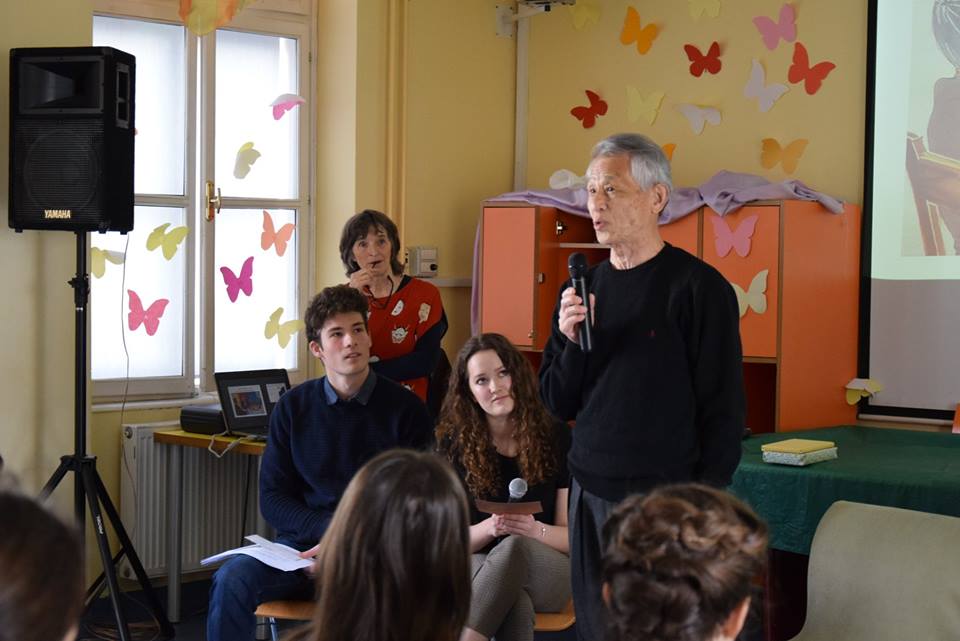
Takeaki Hori paid a visit to St. Stanislav’s institution on 27th March 2019 to talk to third years and student writers of school’s literary magazine. Mr Takeaki is a professor at Fudjivara Joshiharu University, journalist, Japanese PEN ex-president, haiku researcher, anthropologist and environmentalist. Firstly, Mrs. Ifigenija Zagoričnik Simonović, the Slovenia PEN president, presented PEN international and its mission. PEN is an international organisation of poets, essayists and novelists, (more and more journalists are joining in), which was established in London, 1926, after the World War I, to help novelists who were in detention or were persecuted. Each year an International meeting is organised in Bled, Slovenia. Literary artist and PEN members from different countries discuss contemporary world situation, related issues and enjoy the calm environment of natural beauty.
A haiku appears to be an important subject in Mr. Hori’s life. It is a short form in traditional Japanese poetry. It consists of 17 syllables in three phrases of 5, 7 and 5. Everyone holds Matsuo Basho (1644-1694) up as an example how to write a perfect one. He was a pioneer with haikus; he transformed an already existing form of a Japanese poem, saying that everything good has its limit. Mr. Hori believes that a man can write a good haiku only when he takes time for it. Since it always reflects any author’s inner experience, it is always good for him, but not necessarily for the public. He explained that “haiku is philosophy and science. It depends on each individual, how he approaches to it and how deep he can dive in, always opening wide dimensions of its comprehension.”
Mr. Hori works on many other fields as well. Currently he focuses on historical studies about the end of WWII when Japan was marked with Hiroshima and Nagasaki catastrophe. He strives to stop the use of nuclear weapons; therefore, he also encourages people to create haikus for peace. Besides attending PEN International Meeting this year in Slovenia, he also collaborated with PEN at the opening of Hiroshima and Nagasaki: Pain and Courage Exhibition in the National Museum of Contemporary History in Ljubljana. At PEN they are willing to promote peace and want to assert the right for peace. This is also the reason why they opened the exhibition on 25th March 2019. To show that it is of utmost importance to listen to war victims, let them talk about the atrocities and learn what happened to them. Only then will we be able to prevent another outburst of such or even worse type. Mr. Hori, who experienced the catastrophe as a child, wonders repeatedly: “Why did it happen? Why can’t we live in peace, without fear of being attacked with nuclear weapon?” He presented the work of ICAN, an international non-governmental organisation, which attempts to abolish nuclear weapons and was awarded the 2017 Nobel Prize for peace. He is proud of its focus on the victims and their stories, not only on the historical background, pictures and objects, which could be seen in museums. /Lucija Stopar, year 4/